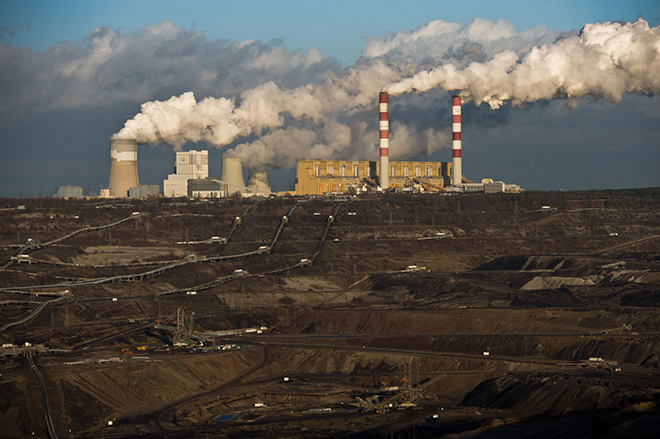S&P Global Offerings
Featured Topics
Featured Products
Events
S&P Global Offerings
Featured Topics
Featured Products
Events
S&P Global Offerings
Featured Topics
Featured Products
Events
Banking & Capital Markets
Economy & Finance
Energy Transition & Sustainability
Technology & Innovation
Podcasts & Newsletters
Banking & Capital Markets
Economy & Finance
Energy Transition & Sustainability
Technology & Innovation
Podcasts & Newsletters
S&P Global Offerings
Featured Topics
Featured Products
Events
9 Jun, 2021
By Yannic Rack

| Long a target for environmental campaigners, Bełchatów is Europe's most polluting power station. Source: Marcin Rozpedowski/Moment Open via Getty Images |
Polish authorities plan to shut down Europe's largest and most polluting coal-fired power station, the roughly 5,000-MW Bełchatów Power Plant, by 2036 as part of a plan designed to ensure the region around the coal plant and its associated lignite mines can get access to EU funds to finance the transition out of fossil fuels.
The 12 units at Bełchatów, which is owned by state-controlled utility PGE Polska Grupa Energetyczna SA, will close in stages between 2030 and 2036 under a Territorial Just Transition Plan published by Łódź province in central Poland, where the power plant is located, PGE said in a statement on June 8.
The proposed shutdown dates are part of the region's application for money under the EU's Just Transition Fund, a €17.5 billion instrument meant to help regions shoulder the cost of shifting to a climate-neutral economy by 2050. Environmental groups welcomed the announcement, although they said the plant should close down even faster.
"The wind is changing — when you see Europe's biggest coal operation heading into retirement, it's clear an era has ended," Ilona Jędrasik, fossil fuel infrastructure lead at environmental group ClientEarth, said in a statement.
PGE, citing data from the Ministry of State Assets, said that mining at the Bełchatów and Szczerców lignite deposits, which feed the power station, will end by 2026 and 2038, respectively. It also confirmed that there will be no additional mine built to tap the Złoczew deposit, which would have extended the power plant's life beyond the 2030s. PGE executives previously said such a plan is unfeasible.
"The development of new deposits would be absolutely unprofitable under current regulatory and market conditions," Paweł Strączyński, PGE's former CFO, told S&P Global Market Intelligence earlier this year, pointing specifically to rising prices in the EU's cap-and-trade emissions market.
Poland, the EU's biggest coal generator, is set to be the largest recipient of money from the Just Transition Fund, and campaigners have said that PGE is jeopardizing Poland's eligibility by continuing to invest in lignite, the most polluting form of coal. The company just commissioned a new unit at the Turów Power Plant, whose associated lignite mine is also the subject of a lawsuit from neighboring Czech Republic.
The Polish government is drawing up plans to separate the coal assets owned by PGE and Poland's other state-controlled utilities into a single state-owned entity, in part to free up the companies to spend more money on renewable energy.
PGE is developing Poland's first offshore wind farms and said it has submitted several projects to the Territorial Just Transition Plan for Łódź, including nearly 100 MW of wind farm projects, about 600 MW of solar photovoltaic farms and an up to 300-MW energy storage system. Altogether, PGE said it plans to invest 5 billion Polish zlotys in the first stage of Bełchatów's transformation.
Joanna Flisowska, head of the climate and energy unit at Greenpeace Poland, said the Polish government could theoretically still delay the closures once it takes control of the assets, although she expects economic pressure is more likely to accelerate the process. Several of Bełchatów's units receive capacity payments that are set to run out before 2030.
"From the economic point of view, I would expect that these dates will be still moved forward," Flisowska said in an email.
Coal shutdowns have accelerated in parts of Europe over the last few years, as high carbon prices, cheap gas and increasing competition from renewables have made them less profitable.
The operator of a lignite-fired plant in Germany said this month that it will shut down the station by 2023, six years earlier than planned, due to rising prices under the EU Emissions Trading System, local news website TAG24 reported. Germany, another big coal producer, has a planned coal phaseout by 2038 that is expected to be sped up after the government was recently forced to strengthen its emissions reduction targets.
As of June 8, US$1 was equivalent to 3.67 Polish zlotys.
